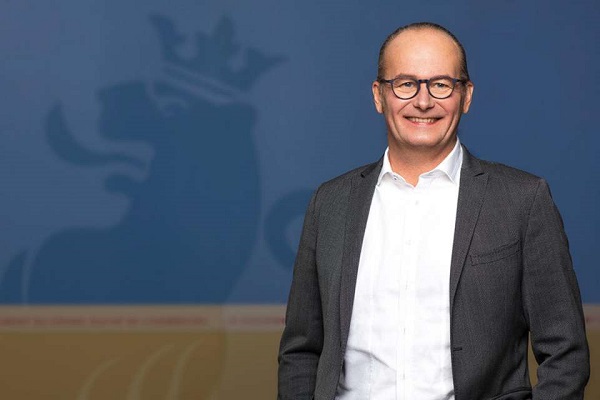 Claude Turmes, Luxembourg's Minister for Energy;
Credit: SIP / Yves Kortum
Claude Turmes, Luxembourg's Minister for Energy;
Credit: SIP / Yves Kortum
On Wednesday 18 May 2022, Luxembourg's Minister of Energy, Claude Turmes, welcomed the presentation by the European Commission of an ambitious European action plan "REPowerEU" for the energy sovereignty of the European Union (EU).
Minister Turmes said: "The objectives for 2030 in terms of the development of renewable energies and energy efficiency have been revised upwards and new obligations relating to the installation of photovoltaic panels on roofs for certain categories of buildings have been introduced. This is the way forward to reduce our dependence on Russia, phase out fossil fuels and tackle the climate crisis.”
Structurally, the solution lies in a massive plan to reduce energy consumption in the EU, diversify renewable energy sources and accelerate their deployment. The "REPowerEU" package includes many elements for strategic reflection to phase out fossil fuels imported from Russia as quickly as possible, and by 2027 at the latest.
Coordinated energy savings plan
Minister Turmes in support of the Commission's initiative for an energy savings plan, said: “It is important to have strong and coordinated measures at European level, inspired by the work of the International Energy Agency".
Towards an acceleration of the deployment of renewable energies
Minister Turmes also supported an accelerated deployment of renewable energies and the Commission's attempt to reduce the duration of the issuance of permits and authorisations for new projects as well as the prospect of carrying out a mapping of the territory aimed at identifying "go-to areas” for renewable energy projects. Europe needs more joint European projects in renewable energy like the energy island in Denmark.
Energy independence
For Luxembourg, it is important that the EU gets out of all fossil fuels, starting with the hydrocarbons supplied by Russia. Thus the objectives of energy independence and the fight against climate change can be pursued together and not opposed to each other. On the diversification of the supply of natural gas, Minister Turmes recognised the need for the EU to resort to alternative sources, in particular in the form of LNG, in order to compensate in the short term for part of the Russian deliveries, however without locking Europe into long-term dependencies.
Value chains linked to the energy transition in Europe
Finally, it is important to strengthen the industrial dimension of renewable energies and repatriate to Europe the value chains linked to the production of solar panels, heat pumps, electrolysers, batteries and all the necessary technologies for energy transition to avoid replacing one dependency with another.








